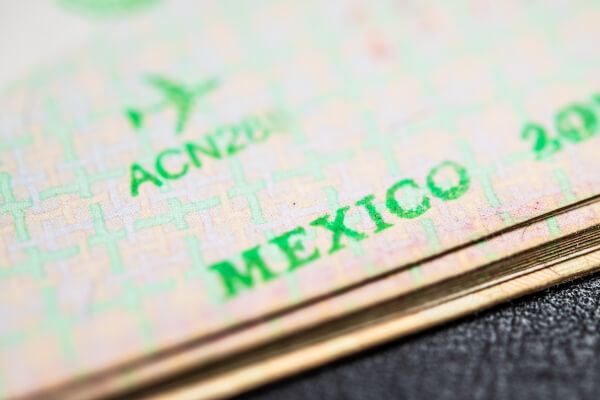Hiring Independent Contractors in Canada: A Complete Guide for Businesses
Learn how to hire independent contractors in Canada. Understand legal rules, tax responsibilities, and how to avoid misclassification with this guide.

Hawaii has a diverse and thriving economy, where tourism and agriculture play key roles. The islands' location in the Pacific makes them a prime spot for businesses looking to bridge the gap between the US mainland and Asia.
The state offers a unique and exciting opportunity for business owners. Over 99% of businesses in Hawaii are small businesses.1
Whether you want to open a charming surf shop catering to tourists or a cutting-edge technology startup, let’s look at everything you need to start a business in Hawaii:
Before jumping straight into picking your business name, you’ll want to do some groundwork on the things you’ll need to start up a business in Hawaii.
The first step is to gather information and make a plan. Read the official guidance on starting a business in Hawaii from the state’s Department of Commerce and Consumer Affairs (DCCA). They offer a comprehensive guide for the process, plus important considerations.2
Now you’re ready to tackle some legal requirements.
Once you’re ready to start the official process of creating your Hawaii business you’ll need to make sure you meet some key legalities:
The first major legal requirement is picking the type of business structure you’ll use. This is the legal framework for your business, which will determine how you run your business and pay taxes.
The best structure depends on your business and liability protection needs or taxation preferences. Here are the most common business structures you’ll need to choose from:
Sole proprietorship: The simplest structure with one owner who reports business profits and losses on their personal tax return. It has no liability protections.
Partnership: A business co-owned by two or more people who share profits, losses, and management responsibilities. Each partner has unlimited personal liability.
Limited Liability Company (LLC): Provide liability protection for owners and profits and losses pass through to the owners' tax returns, like a sole proprietorship.
Corporation: Offer the most significant liability protection but are more complex to set up and run.
You should consult a lawyer or accountant to help you determine the best structure for your unique business goals.
Once you pick your business structure, you can officially register your business with Hawaii. Choose a business name that complies with state regulations. You can check name availability and register a business name through the Hawaii Business Express (HBE).3
Depending on your business structure, file proper formation documents with the Department of Commerce and Consumer Affairs (DCCA), such as Articles of Organization for an LLC.
You can register your business online or in person. The Hawaii Business Express allows you to register your business conveniently. Simply create an account and follow the prompts.4
To register in person, visit the nearest Business Action Center. These centers offer assistance with registration, licensing, and other business needs.5
With your business relegation complete, it’s time to get the necessary licenses and permits. The ones you need will depend on your business and your industry. Here are some of the most common business licenses and permits in Hawaii:
Professional and occupational licenses: If your business involves a regulated profession you'll need a professional license. Use the DCCA’s Professional and Vocational Licensing (PVL) Divisio to identify the specific license.6
Local zoning and building permits: You might need permits from your county or city for zoning compliance, construction, or signage.
Always consult with the relevant agencies or seek professional guidance to ensure you have obtained all necessary licenses.

Starting a business in Hawaii is relatively affordable. The main expenses you’ll need to consider when starting your Hawaiian business include:
Beyond the basic costs, you may need to budget for startup costs like inventory, website development, or business insurance.
Hawaii’s business landscape is different given its unique location and culture. It’s a tourism-driven economy, which is great for businesses catering to visitors, such as restaurants and shops.
Hawaii also places a high value on environmental protection and sustainability. Being an island chain, Hawaii does have limited resources with limitations on things like land and manpower. This can affect factors like operating costs and supply chains.
Hawaii's unique location and culture fuel a diverse economy. Some of the state's most prominent industries include:
Hawaii's business landscape thrives on innovation and catering to specific needs.
Hawaii's unique location and scenery come with a distinct economic landscape. Understanding tax rates, business incentives, and the cost of living is important.
There are two key tax rates you need to know about:
The Hawaiian government offers incentives to attract and support businesses, like tax credits and loan programs. Also, note that Hawaii has a significantly higher cost of living than the national average.
With all the legalities and research out of the way, it’s time to launch your business:
A well-crafted business plan can serve as a roadmap for a successful business venture, and Hawaii is no exception. Certain businesses can also use a business plan to secure funding from investors or banks. It shows the viability of your business idea and that you understand the market.
Crafting a business plan may seem daunting, but using a business plan template is an easy way to get started.
Turning your dream business into reality often requires funding. Here are some of the financing options available to get your Hawaiian business off the ground:
Community-Based Economic Development (CBED) loan program: Offered by the Hawaii Department of Business, Economic Development and Tourism (DBEDT). It prioritizes businesses in the agriculture, food production, manufacturing, and wholesaling sectors.10
Local banks: Many Hawaii-based banks offer traditional business bank accounts as well as loans and lines of credit.
State and Federal Grants: Various government grants may be available for businesses in specific industries or locations.
Research and compare different financing options to find the best fit for your business goals and financial situation.
Now comes the exciting part: spreading the word and attracting customers. In Hawaii, you have a unique opportunity to reach residents and tourists.
A strategic mix of digital and traditional marketing strategies that works well for Hawaiian businesses might look like this:
Digital marketing strategies:
Traditional marketing strategies:
Remember to highlight your local connection. Showcase what makes your business unique to Hawaii.

Breaking into the Hawaiian market requires understanding the local culture and business landscape. Here are some key strategies to navigate the market:
Try to focus on local needs by identifying gaps in the market where your business can serve the local community, such as product localization.
As with any state, there’s no perfect business. Given the character and uniqueness of Hawaii, there are promising opportunities to consider, however, such as:
Note that the success of your business depends on your passion, dedication, and ability to adapt to the unique Hawaiian market.
Launching your business in Hawaii can be an exciting adventure. To turn your dream into reality, careful planning is essential. Remember, Hawaii offers a supportive environment for entrepreneurs.
With thorough preparation and the resources available from local organizations, you'll be well-equipped to navigate the startup process and establish a thriving Hawaiian business.
Even if you're starting a business in paradise, you might have global ambitions. Wise Business can be your financial partner for a borderless operation. Wise is not a bank, but a Money Services Business (MSB) provider and a smart alternative to banks.
Here's how Wise Business empowers your Hawaiian business to thrive internationally:
With Wise Business, you can focus on running your business in Hawaii while managing your international finances seamlessly and cost-effectively.
Open a Wise Business account online
The Wise Business account is designed with international business in mind, and makes it easy to send, hold, and manage business funds in 40+ currencies. You can get major currency account details for a one-off fee to receive overseas payments like a local. You can also send money to 160+ countries.
| Read the guide on how to open a Wise Business account |
|---|
Sources:
All sources checked June 2024.
*Please see terms of use and product availability for your region or visit Wise fees and pricing for the most up to date pricing and fee information.
This publication is provided for general information purposes and does not constitute legal, tax or other professional advice from Wise Payments Limited or its subsidiaries and its affiliates, and it is not intended as a substitute for obtaining advice from a financial advisor or any other professional.
We make no representations, warranties or guarantees, whether expressed or implied, that the content in the publication is accurate, complete or up to date.

Learn how to hire independent contractors in Canada. Understand legal rules, tax responsibilities, and how to avoid misclassification with this guide.

Learn how to hire independent contractors in Brazil. Understand tax rules, compliance, contracts, and how to avoid misclassification risks.

Learn how to hire and pay independent contractors in Mexico. This article also includes an FAQ and best practices about working with contractors in Mexico.

Learn how to navigate the overseas worker recruitment. Discover legal requirements, sourcing strategies, visa compliance, and tips for international hiring.

Paying overseas vendors is common, but the hidden costs of B2B cross-border payments aren’t. Learn how to simplify international business payments today.

B2B payment processing doesn’t have to be hard. Learn how growing businesses can simplify cross-border transactions, streamline invoicing and get paid faster.